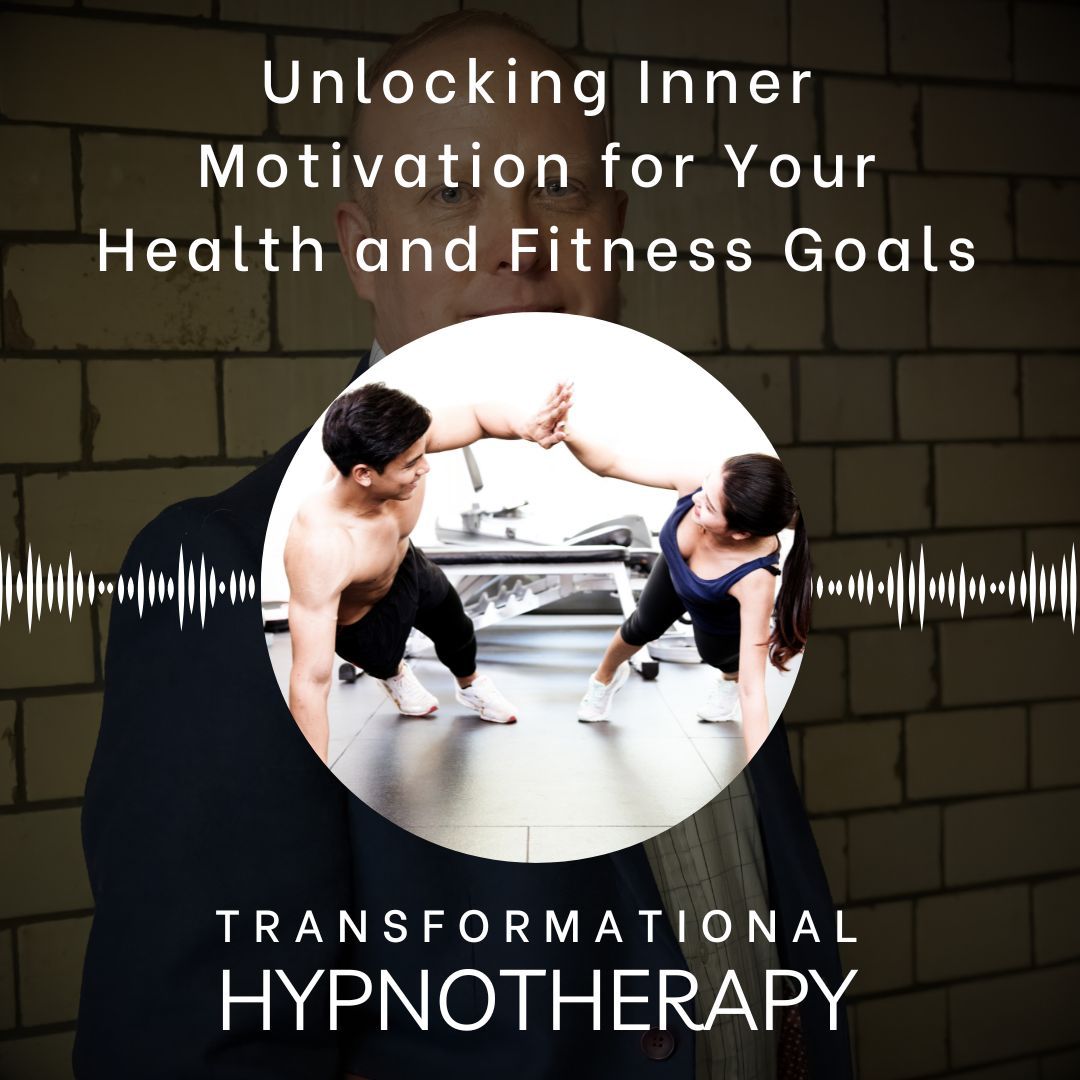Unlocking Inner Motivation for Your Health and Fitness Goals
What if motivation isn't what you need but self love?

Unleashing the Power of Your Mind: Motivation, Fitness Goals, and the Role of Hypnotherapy
Imagine you’re at the gym, kettlebells in hand, a sense of power and purpose coursing through you. It's not just any kettlebell, it's a heart-shaped one, symbolising the love and dedication you have towards your health.
You’re not just exercising, you're expressing your commitment to a healthier, happier you.
You feel driven, ready to conquer any challenge that comes your way. You're not merely working out; you're creating the real version of yourself
So, what's the secret?
It’s the power of the mind, your most potent tool when it comes to achieving health and fitness goals.
Did you imagine that very experience in your mind, as you read the description above?
How did you feel?
Your Mind Shapes Your Fitness Journey
You've probably heard it said that getting in shape is 80% diet, 20% exercise, but that equation is missing a crucial variable - the mind.
What you think and believe significantly impacts your motivation levels and, by extension, your ability to stick to your fitness goals.
Positive self-talk, visualising your goals, and maintaining an optimistic outlook can significantly impact your motivation. For example, the very act of imagining yourself exercising can actually enhance muscle memory, potentially improving your performance during the actual physical activity. When we perceive exercise as something beneficial and enjoyable rather than a chore, we're much more likely to stay committed and less likely to give up when challenges arise.
Conversely, negative thoughts can act as a roadblock to your success. If you constantly tell yourself you can't do something, you're setting yourself up for failure. You have the power to create your reality, and this includes your health and fitness journey.
You see your mind cannot perceive the negative, only the words you tell yourself, the pictures you paint in your mind and the emotions you attached to that experience and here's is the kicker, most of that experience is subconscious.
Hypnotherapy: An Untapped Tool in Fitness
If, you understand the importance of the mind in achieving your fitness goals, but how can you harness this power?
This is where hypnotherapy steps in.
Hypnotherapy is a therapeutic technique that uses hypnosis to create a state of focused attention and heightened suggestibility. It aims to make lasting changes by influencing the subconscious mind, the part of our mind that is often responsible for our habits, behaviours, and self-beliefs.
This form of therapy can address and resolve the underlying psychological factors that may be sabotaging your health and fitness efforts. Perhaps you have deep-seated beliefs that you're not athletic or that exercise is punishing. Maybe you have a pattern of emotional eating. Hypnotherapy can help reprogram these unhelpful subconscious beliefs and behaviours.
In the context of fitness and health, hypnotherapy can:
1. **Increase Motivation:** Hypnotherapy can help increase your drive and dedication towards achieving your health and fitness goals. It can cultivate a more positive outlook towards physical activity, transforming it from a dreaded task to an enjoyable habit.
2. **Improve Self-belief:** If you struggle with self-confidence, hypnotherapy can help change these perceptions. It can foster a sense of self-belief, ensuring you feel capable and ready to achieve your fitness objectives.
3. **Develop Healthy Eating Habits:** Hypnotherapy can also address issues related to food and diet, helping to establish healthy eating patterns and combat emotional or stress eating.
It's all a journey of self love
The journey towards fitness is not just about the physical effort but also about understanding and harnessing the power of the mind and the heart.
Hypnotherapy is an effective way to tap into this power, helping you overcome barriers, and propelling you forward towards your health and fitness goals.
The image of the man and woman happily swinging heart-shaped kettlebells is not just a display of physical strength, but a testament to the power of the mind in the journey of fitness.
With the right mindset, heartset and soulset and tools, like hypnotherapy, you too can shape your journey towards a healthier, happier, and more fulfilled life.










